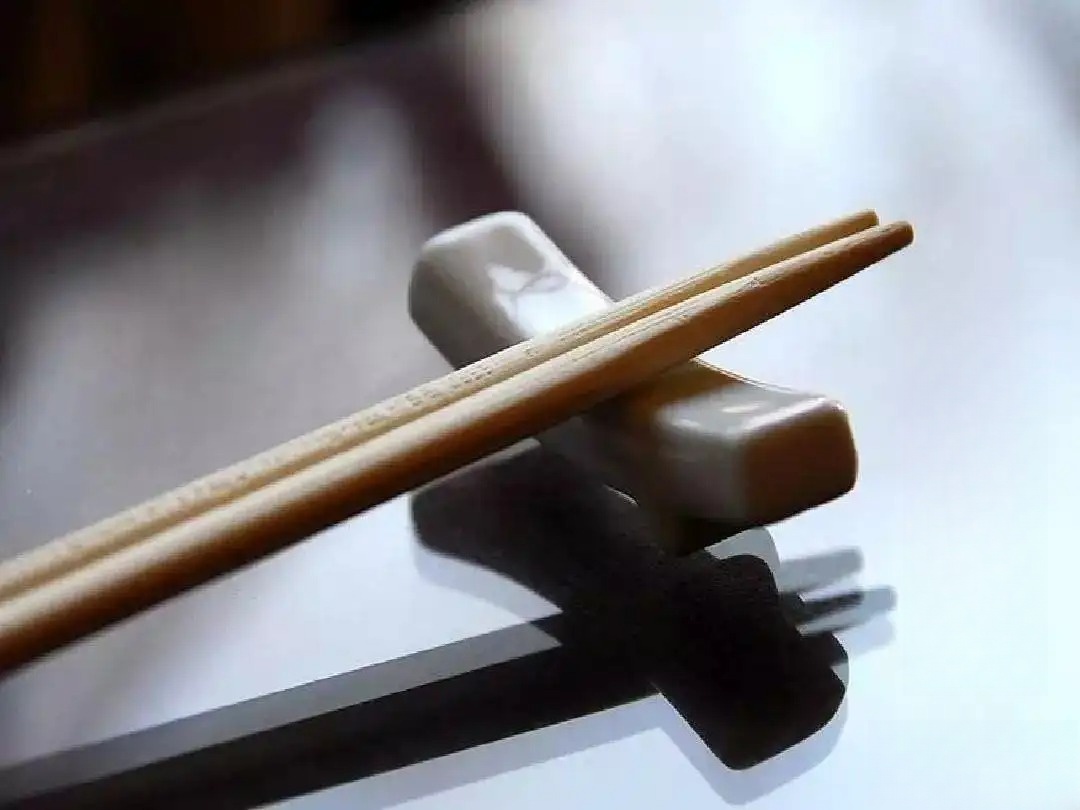20 Table Manners, Save Them!
■ Let’s cook those words together ■
China is a country of etiquette. From ancient times to the present, many table rules have been passed down, which are an important part of our traditional culture. With the development of the times, there have been some interpretations and changes, and sometimes there are some differences due to different regions, but there are some general rules to know, especially in the workplace, table etiquette is a test of personal cultivation.
The following 20 points may not be comprehensive, but if you can stick to them and do them well, at least you won’t make a fool of yourself or lose face.
1. You may take your seat only after the elders are seated. If there are ladies present, give them priority.
It is basically possible for the elders to sit down first, but in many workplaces, most of the leaders are men, and if he can implement the policy of "ladies sit down first", it can better reflect his leadership style.
2. Pay attention to the seating arrangement and do not sit in the wrong seat. If you sit in the wrong seat, you will feel uncomfortable while eating.
Regarding seating, the host's right hand side should be the guest of honor, who should be the most distinguished guest at the scene, and the host's left hand side should be the deputy guest of honor. When I first entered the workplace, I once sat in the guest of honor seat by mistake because I didn't know the rules. I didn't realize it at the time. When it was time to toast, someone said, "You sit in that seat, you go first..." When I realized that I sat in the wrong seat, my face immediately turned red...
3. After the food is served, wait for the elders or guests to start eating first.
Generally, the dining table in formal occasions is basically a round table. When the dishes are served, it is generally customary to place the dishes at the guest of honor first and let the guest of honor start eating first. However, many young people who have just entered the workplace ignore this detail. When the dishes are served, they start eating based on the principle of "nearby". If they encounter a boss who is more picky, then they will be in trouble...
4. Do not turn the table when guests are picking up food. Turn the table slowly, not too fast.
In the workplace, especially for employees dealing with external business, you should master more skills in table etiquette and always pay attention to the guests' eating rhythm. You should not neglect the care of the guests because you are only concerned about your own eating. I have encountered a situation where the guest's wine glass was knocked over at the table because the table was turned too fast, and several people were busy wiping the spilled wine. That kind of scene was quite frustrating.
5. When toasting, clink glasses low, hold the glass with both hands, one hand holding it and the other hand supporting the bottom of the glass.
Generally speaking, when clinking glasses, you should be more modest and put your glass lower than the other person's to show respect. However, many people are used to holding the glass with one hand. The most gentlemanly and sincere way to toast is to hold the glass with one hand and the other hand to support the bottom of the glass.
6. When toasting, pay attention to the order and toast to the elders first.
In principle, elders should be respected first. However, sometimes there are many people present, and under certain conditions, the "proximity principle" can be used.
7. When toasting, focus on "toasting" and do not force the other person to drink, which will create an awkward atmosphere.
The wine culture of China is broad and profound. "If you have deep feelings, drink it in one gulp; if you have shallow feelings, just lick it" has become a mantra for people to test their friends at the drinking table. With the rise of the concept of health preservation, people nowadays are well aware of the harm of excessive drinking, so don't force others to drink, it is better to drink in moderation.
8. Full wine, shallow tea. The wine should be filled up (to be discussed if the guest has special requirements), and the tea should not be too full to avoid overflowing.
In the drinking culture, people pay attention to "full satisfaction". Because tea is hot, you should not fill the cup too full. When pouring tea, if you make a mistake and the teacup overflows, it will be impolite.
9. The spout of the teapot should not face the guests.
To be honest, I just learned about this rule. A few days ago, a friend from Beijing came to visit and we had dinner together. I took the initiative to serve him. After pouring the tea, I put the pot aside. My friend told me that I have seen a lot of things, so why didn’t I pay attention to the direction of the pot’s spout? Are Beijingers more particular? Well, the great capital has many rules!
10. Add tea and wine from the guest’s right side.
This rule was told by an elder, adding from the right side shows respect, and the guest returns the greeting by holding the cup with the left hand.

11. Many people can toast one person, but one person cannot toast many people.
At this time, you need to position yourself accurately. If you think you can handle a situation where one person toasts to many people, you can try it, but it will create an impression of "arrogance", so you still have to be cautious.
12. Eat vegetables and drink soup slowly in small sips, and do not swallow them loudly.
This habit needs to be developed in daily life. No matter at home or outside, you should form good habits. Otherwise, you will not be able to hold on in formal occasions.
13. Don’t talk with food in your mouth.
This habit should be cultivated from an early age. Nowadays, people's pampering of children seems to have weakened the inculcation of this etiquette. However, if you are seen talking with your mouth full of food in public, your image will be compromised!
14. When the elders are speaking, you should put down your chopsticks and stop eating to show respect. Don't just focus on eating yourself.
It is extremely disrespectful if you just keep your head down and eat while your elders or leaders are speaking.
15. Avoid using toothpicks at the dining table. If necessary, be sure to cover them with your hand or napkin.
It is common to get food stuck in your teeth while eating, but try to be patient and use a toothpick when you leave the table. Whether you are a man or a woman, shaving your teeth at the table does not look aesthetically pleasing.
16. Men should seek consent from the women around them before smoking.
Many male chauvinists may be disdainful of this, and many women have also been troubled by "second-hand smoke" in drinking places. Wise men need to ask the women around them before smoking. Generally, women may agree to it for the sake of face, but smoking without asking for their opinions is very impolite.
17. Be good at listening and don’t express your opinions without authorization.
Especially young people, at the dinner table, should listen more and talk less, and definitely not "steal the show".
18. Do not interrupt the elders or guests when they are speaking, and do not interrupt them.
Young and energetic newcomers are sometimes eager to express their opinions and interrupt the speeches of elders or guests. This is very impolite. If you really want to express your opinions, you can wait until the elders or guests have finished speaking and then elaborate briefly.
19. When an elder or guest stands up, you should take the initiative to stand up and see if they need help.
During a meal, if an elder or guest stands up, perhaps to answer a phone call or go to the toilet, you should take the initiative to stand up and open the door for them, or politely ask if they want to accompany you.
20. When leaving a table, let the elders or guests go first.
When leaving a party, do not rush to leave. Let the elders or guests go first, and then check if there is anything left behind by the guests in the room.
Table manners are a place that reflects personal accomplishment. How to show respect, politeness and neither servility nor overbearing requires a certain amount of accumulation. All the rules are not mechanically applied, but should be integrated according to the situation. As you grow up, you are also accumulating experience along the way.

